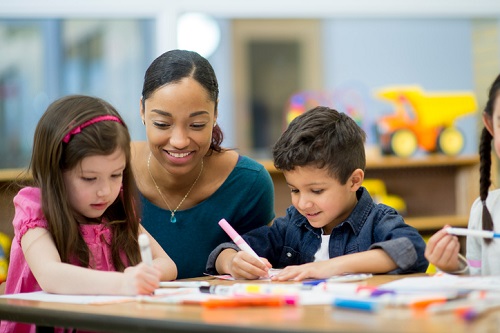
Mindfulness – the mental state achieved by focusing one's awareness on the present moment – can have a profound impact on our ability to remain calm and focused in an increasingly fast-paced and ‘switched on’ society.
With up to 20% of Australian students currently disengaged at school, research shows that mindfulness can help young people develop the emotional, behavioural and attention regulation skills that set the crucial foundation for learning and train students to be better equipped for the pressures of adult life.
Janet Etty-Leal – who has been working as an educator for nearly 35 years and a creative mindfulness educator for nearly 20 years – knows the profound impact of this first hand.
Over this time, she has worked with over 80 schools and educational organizations nationally, teaching children from 3-18 years and training staff in government, private and special schools.
In 2008 Etty-Leal was approached by Monash University/Southern Health in Victoria to develop a comprehensive mindfulness program for primary students. The program was one of the first pilot projects to be undertaken in Australia.
In 2015, five years after a paper on this pilot was published in the international journal ‘Advances in School Mental Health Promotion’, Etty-Leal developed a primary and secondary nature-based mindfulness curriculum for Cool Australia/Planet Ark.
Etty-Leal said her motivation to explore mindfulness as an educator stems from personal experience.
“As a very young child, I was diagnosed as remedial. Consequently, I spent years at school with a limited mindset of what I could achieve, which became a self-fulfilling prophecy,” Etty-Leal told The Educator.
“Fortunately, I eventually discovered how to connect to and embrace my strengths.”
Another challenge, said Etty-Leal, was to experience debilitating mental health issues over many years, including being hospitalised for depression.
“Both these experiences caused me to leave my work as an art teacher and undertake training to become a mindful meditation consultant, to enable and empower children and their teachers to make the very most of their minds and build positive self-awareness, resilience and creativity,” she said.
Etty-Leal said her passion now is to share holistic mindful education with teachers.
“My professional development courses cover basic neuroscience principles for teachers to comprehend and appreciate the potential – and pitfalls – of the wonderful instrument of the human mind,” she said.
“The training embraces the character strengths of curiosity and creativity to encourage teachers to practice mindfulness for their own self-care and model compassionate, connected mindful behaviour to their students.”
‘A positive palette of concepts and practices’
Etty-Leal said “a positive palette of concepts and practices” is introduced for teachers to share simple, effective practices with students throughout the day to “retune bodies, reset brains and prime minds” for learning.
“In time, practices engender kindness and co-operation to create compassionate, productive classroom cultures and school communities,” Etty-Leal said.
“When possible, I encourage administration staff to attend training sessions and provide information evenings for parents to extend mindful learning into homes.”
Elizabeth Lenders, the principal of Kingswood College, located in Melbourne, said Etty-Leal’s work was central to the development and implementation of her school’s0 Mindfulness program over the last three years.
“Janet’s positive relationships with our staff and students have been invaluable to our progress. Her support for our holistic education of the mind, body, heart and spirit has been wonderful,” Lenders said.
David, a Kingswood College student, said each of the program’s activities made him calmer for the rest of the day.
“The key is focus. If you focus on the activity, you really get a lot out of it,” he said.
Related stories:
The benefits of teaching students about mindfulness
Mindfulness improving teaching and learning, trial shows


